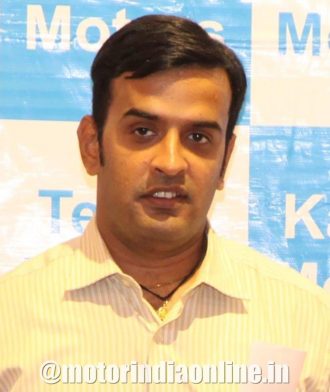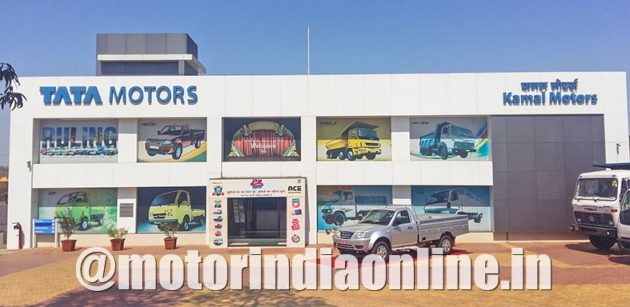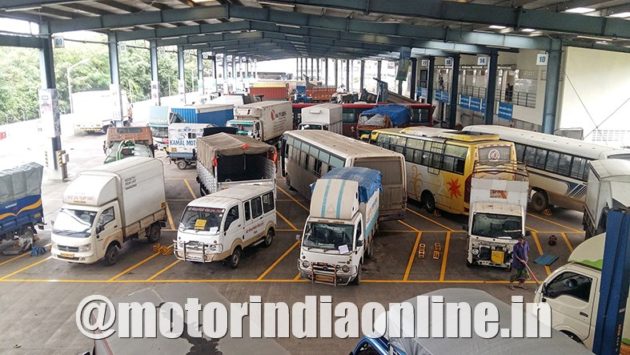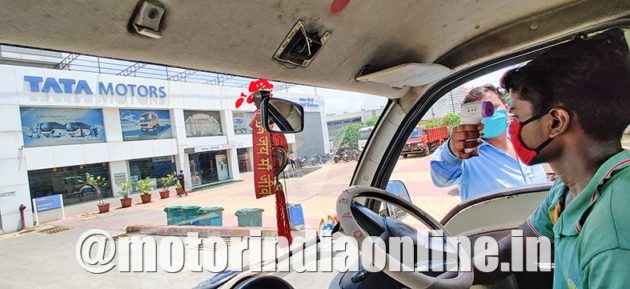While the servicing of vehicles has been the first big step in normalising its operations, the company has also adapted new modes of marketing and sales through online channels. Rajesh Rajgor reports about how the company is all set to face the new challenges posed by the pandemic and make the best use of available opportunities

In the financial year FY 2019-20, Tata Motors’ dealer, Kamal Motors, sold the highest number of vehicles ever since inception. Commenting on this, Tejpal Ailsinghani, Managing Director, Kamal Motors, says, “I know many would highlight the lockdown and the negative impact of it but we would like to highlight the fact that in the last financial year we sold our highest-ever numbers of 10,000 units. We came close to this figure in FY 2018-19 but we couldn’t breach the 10,000 mark. This was certainly positive and encouraging for all of us in the commercial vehicle (CV) business. It also reiterated our contribution towards Tata Motors’ market share in our region.”
Ailsinghani goes on to call attention to the fact that the small commercial vehicle (SCV) segment has shown signs of improvement after a slump in 2016-17 and 2018-19. “On the SCV front, the business has been quite good. We have bagged some excellent orders in the pickup segment i.e. Yodha from cash van customers. The business in ILCV and MHCV were also equally good because of many strategic deals which came our way. Needless to say, our retail customers also contributed significantly to our volumes. In March, when people were struggling to sell 100 vehicles, we sold 500 units. CNG buses also contributed to this growth,” shares Venugopal Nair, Chief Executive Officer, Kamal Motors, adding, “This of course would not have been possible without the support from our principal company, Tata Motors and the financial institutions. In the CV business over eighty percent of the vehicles are financed, which effectively means unless one does not have a strong relationship with and support from financiers one cannot grow.”

And even as India was nearing the deadline for BS VI transition from April 1, 2020, the dealership had phased out its BS IV stocks, especially in the medium and heavy commercial vehicle vertical. It, however, had a few SCVs left since the lockdown was announced on March 23, right in the middle of the transition. “We were left with few vehicles in SCV due to immediate lockdown but we capitalised the vehicles in our company’s name. We will sell the vehicles to customers as second sale though with commitment from Tata Motors and financers that they will be treating them as new vehicles,” Ailsinghani informs.

Resumption Post Lockdown
Following the gradual unlocking of commercial activities across the country, Kamal Motors resumed operations at the end of May with 33% workforce, focusing on servicing with strict standard operating procedures (SOPs) as prescribed by Tata Motors. “When a customer comes to the workshop, we now screen the driver, make sure he observes the procedures of sanitisation, then keep the vehicle in the bay for about 30-45 minutes for sanitisation following which it is taken for servicing. There are a few clear instructions from the OEM that we follow and hence it is obvious that the time at the workshop for vehicle servicing has increased. The good part is that despite the current situation, we are receiving 15-20 vehicles daily,” Nair states.
On the sales front, has Kamal Motors also adopted the e-commerce route to offer digital solutions to its customers? Replying to this query, Nair says, “We have had Zoom meetings, presentation and launches for customers using the internet and even though the CV is more of a utility vehicle, it is more likely to be successful in leading to a virtual sale through an e-commerce deal. The future of commercial vehicle sales will largely depend on how well our team is able to explain the advantages of the product as well as the Value Added Service (VAS) offerings that Tata Motors has with the product. We believe that while digitization is not new, using it effectively for engaging with customers is the right way to maintain transparent communication. Apart from the test drives that will be missed, there are higher chances that a customer will buy a commercial vehicle without visiting the dealership as compared to personal use vehicles.”

Elaborating on this trend, Ailsinghani states, “It is important we focus on attracting customers seeking to buy new vehicles due to various reasons such as a vehicle getting older than eight years, interest in BS VI and easy financing options ahead of the monsoon and festive seasons. It is our job to keep them abreast with the updated variants and features in new vehicles. While we have been doing it with email brochures and various social media platforms, we have added another layer to it which customers have found to be convenient.”
The digital route notwithstanding, Kamal Motors doesn’t rule out the fact that a dealership business has always been a capital and manpower-intensive business. It is what it is because of the people who serve and sensitize customers about new products. “Our manpower is very important to us. We have paid salaries to staff even during lockdown and some of them are back on the job. While we continue to resume work in a slow but upward gradient, all our employees are aware that they now have to work even harder to reiterate their worth and efficiency. On our part, we are clear that we would not terminate the services of any employee but reallocate work as required in order to optimize resources,” Nair states.

Lockdown Learnings
While the lockdown has been really hard on the entire automotive sector, it has also been a period of learning some invaluable lessons. “One of the biggest learnings from the lockdown will not only take Kamal Motors forward but everyone involved in the industry. It is the mantra of flexibility in approach. Also, the pandemic has taught us to be emphatic towards each other and be more understanding. As a corporate we do engage in CSR activities but this time our top priority was to ensure the wellbeing and safety of our employees. That is the empathy I am talking about. We have not only guaranteed safety at work but ensured timely payments and recalled people who could come to work using their own vehicles,” Nair says.
Ask Ailsinghani if shared mobility will take a beating post the lockdown and he opines, “Buses and other shared mobility vehicles might see a decrease in demand for some time, but I am sure that there would be no need to completely discard them. What is required is innovation and change in capacity structure. While work from home is encouraged for white collar employees, blue collar workers will have to use public transport that will have to be modified to suit the current scenario.” And this might also turn out to be a great opportunity for banks to attract first time users with easy financing schemes and pass on the benefits the government has rolled out for economic revival.
“Many finance companies have come to us and said that they are willing to support the potential customers but the genuineness of the customer’s requirements need to be established. Government interventions with scrappage policy, GST reductions will certainly boost sentiments and surge demand,” Nair concludes.